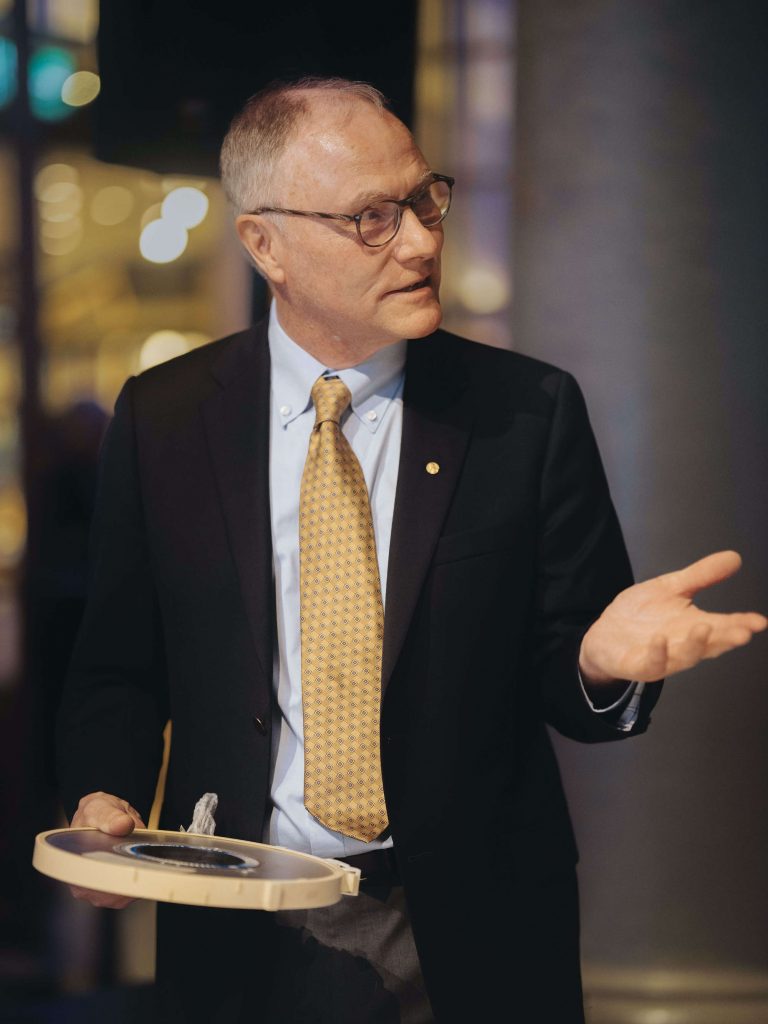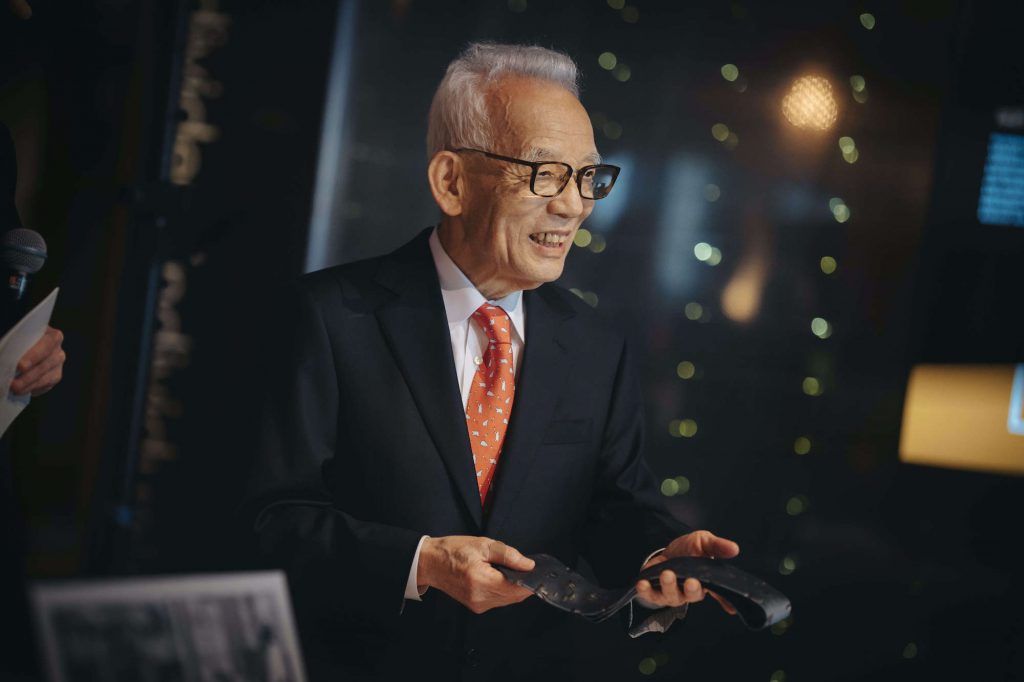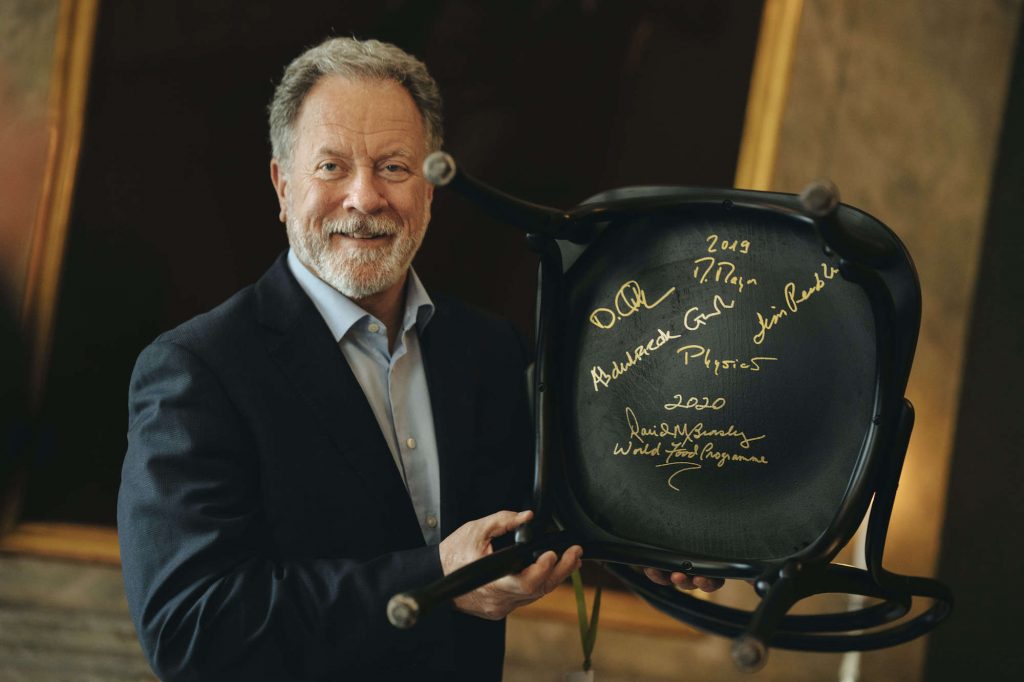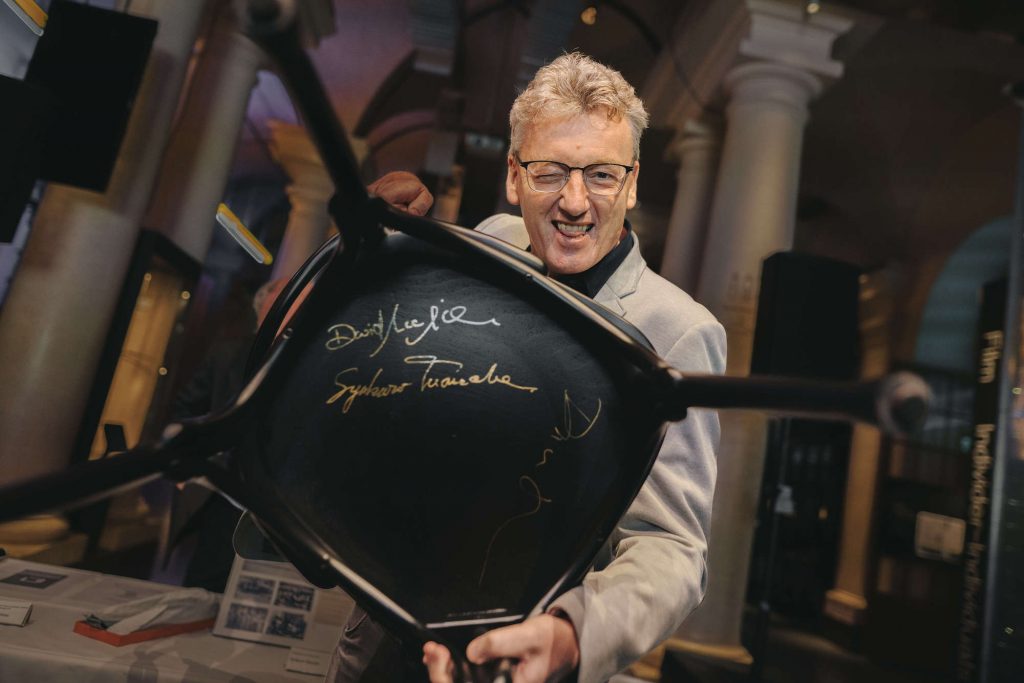When Nobel Prize laureates visit the Nobel Prize Museum in Stockholm’s Old Town, they are always asked to donate an artefact that has meant something special to them. These tangible objects help bring to life the stories of the laureates, which are retold in exhibitions and by the guides at the museum. The chair-signing is the museum’s unique guest book. At Bistro Nobel, museum visitors can enjoy a meal while sitting on a chair signed by a laureate.
Syukuro Manabe was one of the laureates who visited the museum on 14 June and participated in the ceremony. He received the 2021 Nobel Prize in Physics together with Klaus Hasselmann for laying the foundation for our understanding of the Earth’s climate and how we humans contribute to its changes. He donated one of his ties, decorated with penguins and polar bears − animals that are greatly affected by climate change.
One of the 2021 economic sciences laureates, David Card, donated a magnetic tape. In the 1980s and 1990s, researchers did not have access to the high-capacity hard drives that are common today. Instead, they used magnetic tapes. David Card handed over such a tape that he had used in his prize-awarded research.
Christopher A. Sims, 2011 economic sciences laureate, spoke warmly about his maternal grandfather William Leiserson during the ceremony. As a child, Chris was always encouraged by his grandfather to tell what he “think of the present situation of the country”. The laureate’s gift to the museum was a book containing a collection of lectures that his grandfather delivered at Columbia University.
Also present at the donation ceremony were 2021 chemistry laureate Sir David W.C. MacMillan, who signed a chair, and 2018 chemistry laureate Frances Arnold. She had already donated an item and signed a chair during the 2018 Nobel Week.
Earlier the same day, David Beasley, Executive Director of the World Food Programme (WFP), visited the Nobel Foundation. WFP received the 2020 Peace Prize. He also took the opportunity to sign a chair for the Nobel Prize Museum’s Bistro.
Press photos and captions can be found at:
https://nobelprize.org/press-images-nobel-prize-museum
For further information, please contact:
press@nobelprize.org
-

David Card. Photo: Clément Morin
-

Syukuro Manabe. Photo: Clément Morin
-

David Beasley, Executive Director of the World Food Programme. Photo: Clément Morin
-

David W.C. MacMillan. Photo: Clément Morin
-
David Card. Photo: Clément Morin
-
Syukuro Manabe. Photo: Clément Morin
-
David Beasley, Executive Director of the World Food Programme. Photo: Clément Morin
-
David W.C. MacMillan. Photo: Clément Morin
Nobel Prize Museum
The Nobel Prize shows that ideas can change the world. The courage, creativity and perseverance of the Nobel Laureates inspire us and give us hope for the future. Films, in-depth tours, and artefacts tell the stories of the Laureates and their contributions ‘for the greatest benefit to humankind’. Based on the Nobel Prize’s unique combination of fields – natural sciences, literature and peace – we examine the greatest challenges of our time and show how we can respond to them through science, humanism and collaboration. With our exhibitions, school programmes, lectures and conversations, we at the Nobel Prize Museum strive to engage the public in making a better world. Today we are located at Stortorget in Gamla Stan, Stockholm’s Old Town district. We are planning to create a new home for our public outreach activities at Slussen in downtown Stockholm.
Disclaimer: Nobel Prize Museum is not directly or indirectly involved in the process of nominating or selecting Nobel Prize laureates. These procedures are strictly confidential and regulated by the Nobel Prize awarding institutions.
© Nobel Prize Museum 2022. Nobelpriset®, Nobel Prize® and the Nobel Prize medal are registered trademarks of the Nobel Foundation.